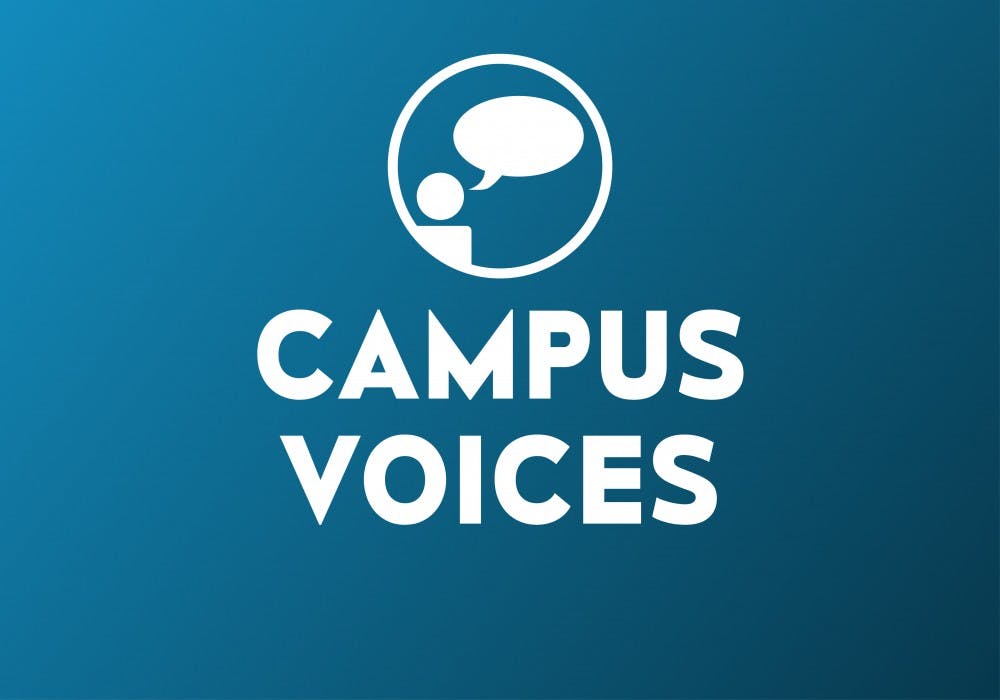This Campus Voices appeared in the Nov. 9 edition of The Pendulum. Campus Voices are written by members of the Elon community, not ENN staff members, and represent their informed opinions. Campus Voices and other opinions content are separate from news coverage.
I want to start off this article by fully addressing what this is in response to. Last week, an article named “I’m coming out” was published in The Pendulum, where the author of the article “came out” as a conservative. At the end of this article, she also noted that people are complex and that she was open to conversation. What follows is my attempt at enlightening that author and encouraging that same conversation that she asked for from others concerning her article.
Hearing a person say that they’re coming out usually fills me with hope and happiness. Mostly because I know exactly what it takes to get to that stage in life. It takes a lot of strength, courage, thought and bravery to get to the point where you come out as part of the LGBTQIA community. I instantly want to congratulate them for taking this huge step, one that I personally took my first year at Elon. I know exactly what it feels like to have your heart beating faster than you ever thought it could, to tell someone a secret that only you have known for such a long time. That’s why when people “come out” as something like being a conservative, that hope and happiness turns into anger and sadness. As someone who has undergone the coming out experience, to see such a monumental and even terrifying part of life appropriated makes me feel invalidated.
What makes coming out even more harrowing is the fact that it’s not a one-shot deal that you only have to experience once. Throughout my entire life, I’ve come out more times than I can count, both formally and informally, to family, friends, professors and everyone in between. For me, and for many other LGBTQIA people, coming out can be something that is on our minds almost all the time, especially entering into new contexts. And sometimes, coming out isn’t something that is said. Sometimes coming out is walking down the street holding hands with a boyfriend and wondering if someone will yell a slur at you. Sometimes it’s blocking family and family friends from social media for fear of posting pictures of you showing affection to someone you love, only to receive backlash. Sometimes it’s waiting until you are no longer dependent on your family to come out, since coming out could lead to your family abandoning you and leaving you on your own financially. Along with all of those things, one thought that is always on my mind is the threat of physical violence. With so many stories about gay men being assaulted just because of their sexual orientation, I can’t help to think about and even police my own behavior for fear of someone taking something I do in a way that results in them assaulting me.
Despite all these thoughts that run through my head daily, I still am thankful for a support system consisting of both friends who support and love me and family members who do the same. Personally, I feel extremely grateful that I had an accepting mother that I came out to three years ago, who supports me and whoever I choose to date no matter what. For some LGBTQIA people, that isn’t a possibility for a multitude of reasons. Some have to worry about keeping their job, since you can be fired for being LGBTQIA in about 30 states. Some have to worry about where they’re going to use the bathroom, with the passage of bills like North Carolina’s HB2. And, for some, they have to worry about whether or not they will be one of the victims of a hate crime, especially in the wake of the Orlando Pulse Nightclub shooting this summer, which killed 49 people and injured many more. Some have to worry about where to live, with homeless youth service providers reporting that 40% of their clients identify as LGBTQIA. And while homeless, LGBTQIA people are more likely to be sexually assaulted, report mental health issues and consider suicide.
The point of all of this is simple: the phrase “coming out” has a long history, one that is intrinsically linked with the LBGTQIA community. For me, saying that you’re “coming out” as anything other than a member of the LGBTQIA community is looking in the face of so many people who have undergone this experience and using their emotions, their pain, their bravery, their triumph and sometimes their loss, and using it for your own gain. What I ask is simple: next time you use the phrase “coming out,” think about the context it stems from and use a different phrase if it doesn’t apply to you.


